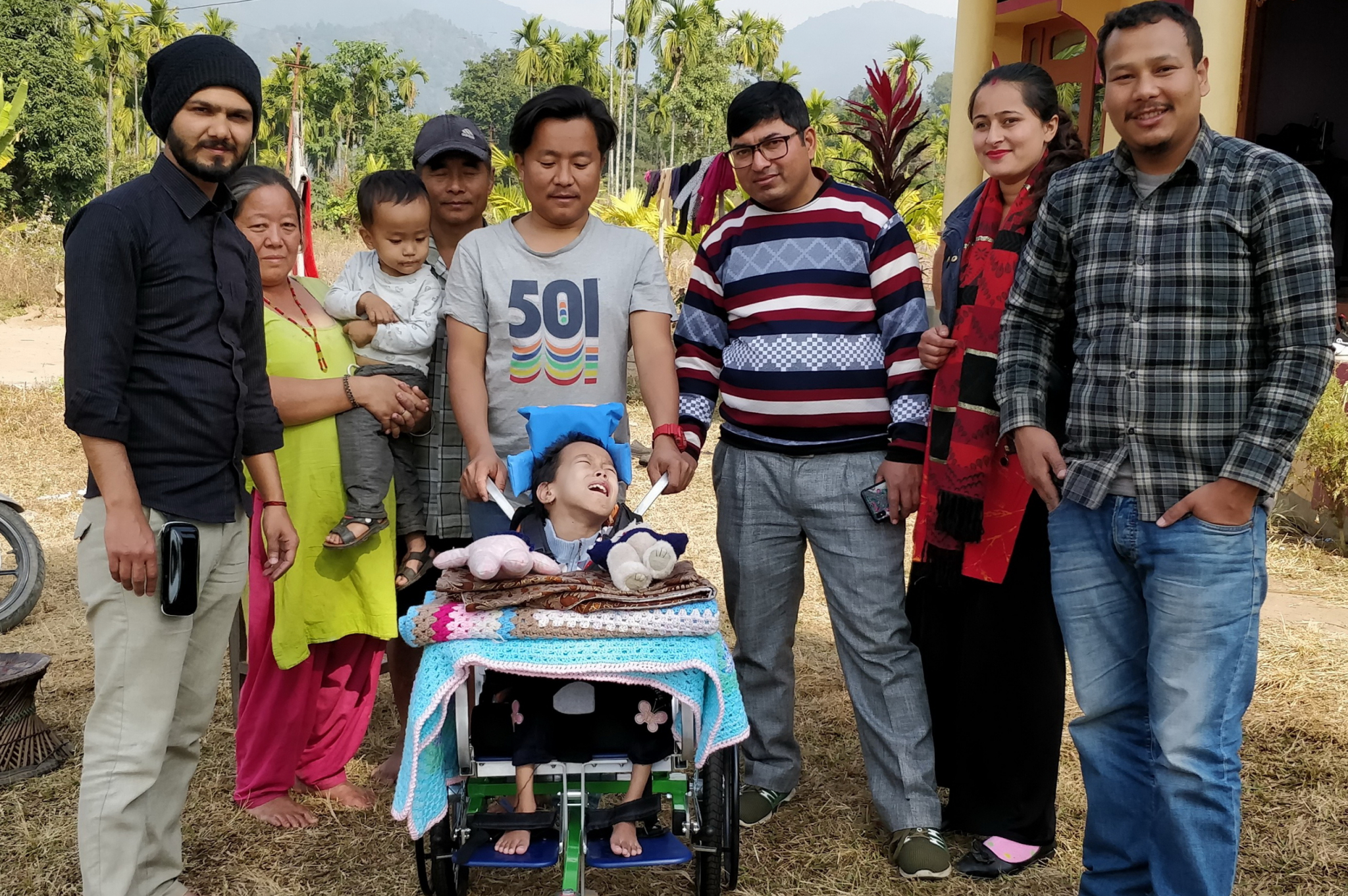Parents and their children with a disability are united in a parents group
The CBR approach
The Community-Based Rehabilitation (CBR) component of Karuna Foundation Nepal was based on the recognized CBR approach developed by WHO. The CBR strategy assumes that the situation of people with disabilities must be improved in five different areas (health, education, livelihoods, social affairs, and empowerment) to guarantee people independent and dignified livelihoods.
Our approach puts the child with a disability at the center. The family is intensively involved to empower them and teach them how to best support their child. We also focus on the community by making them aware of the opportunities they have to help people with disabilities and try to eliminate prejudices about people with disabilities. Program coordination is done by a program manager in the municipality. Persons with disabilities or their family members are locally organized in “Disabled Persons Organisations” (DPO), which lobby in their municipalities for their rights and opportunities. When the CBR strategy was introduced, it was realized that a number of disabilities could be prevented by better care during pregnancy and delivery and early diagnosis. This care was added to the CBR strategy by the Karuna Foundation.
The program’s central role is with the Community Based Rehabilitation Facilitator (CBRF). Someone from the community, employed by the municipality, who is trained by Karuna Foundation to identify people with disabilities, screen them and identify with them what is needed to make improvements. This involves working intensively with a network of organizations like the centre for Autism, the Biratnagar Eye Hospital, Nick Simon Institutes, and many others. The CBRF convinces parents of their child’s chances and persuades them to send the child to school despite the disability. With the school management, the CBRF discusses the adjustments needed for this. People with disabilities (or their family members) also form a “self-help group”, where they start income-generating activities, save money, lobby and build a social life. In a very pragmatic way, barriers are removed one by one, sometimes just by pointing out the social services and rights that exist for people with disabilities.
In summary, the program is: integral, “community-based,” and temporarily co-funded. An ambitious program with a mission to strengthen the healthcare system in Nepal in a few years to provide long-term better life opportunities for children and adults with disabilities.

